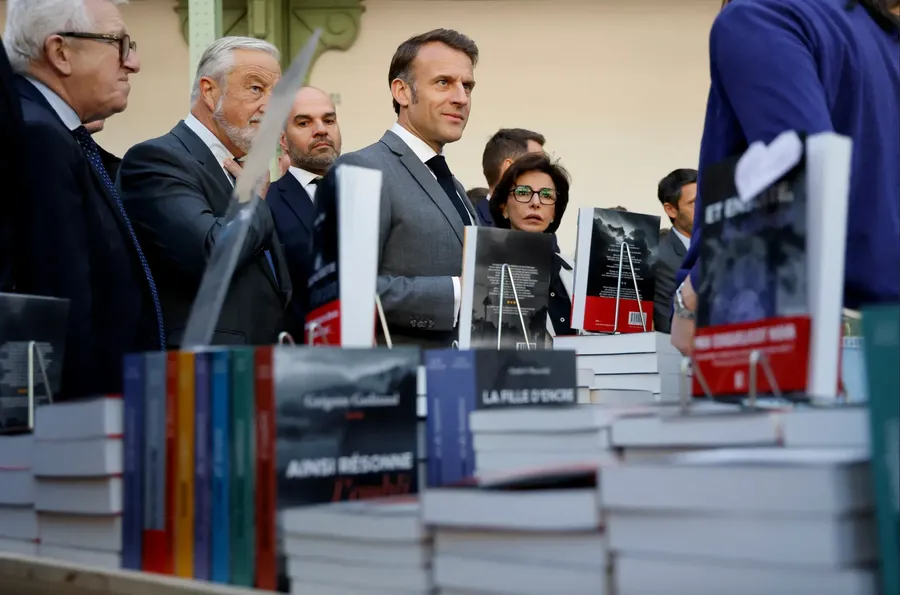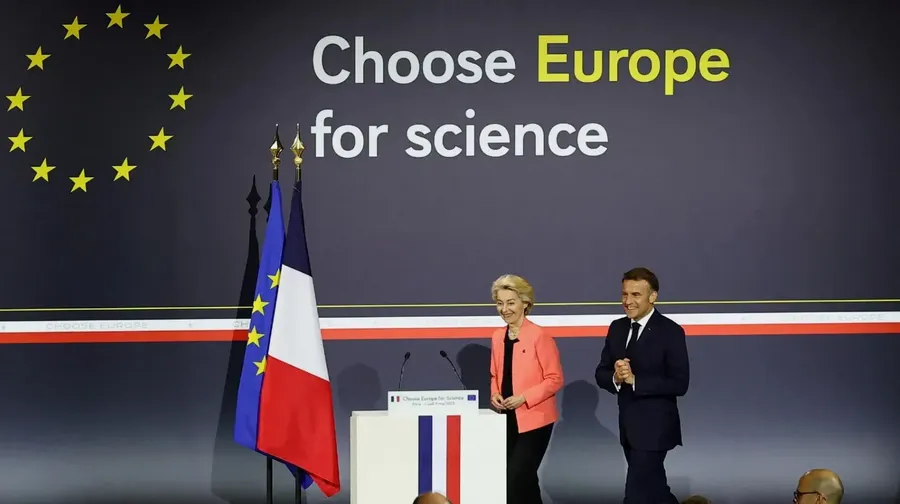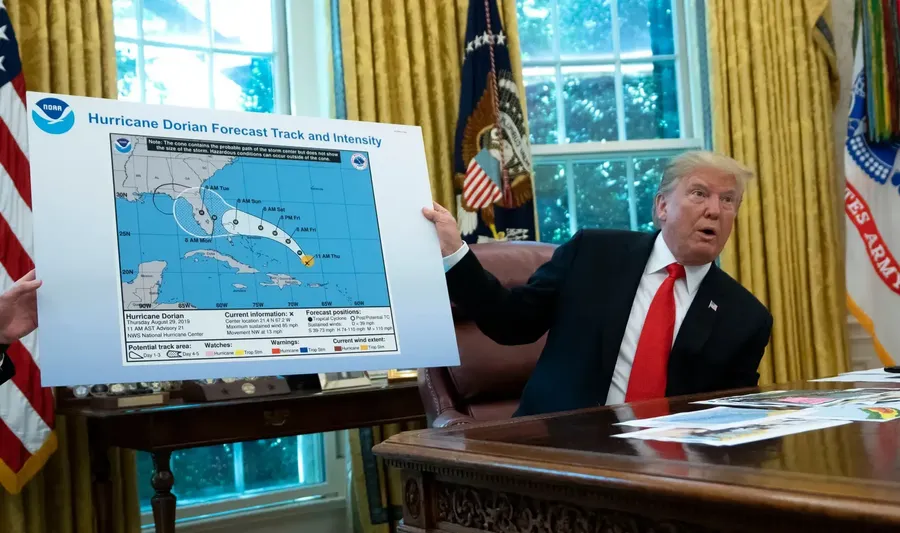A New Scientific Exodus
by u/Case_Newmark
The United States has long been a beacon for global scientific talent—a country where academic freedom, cutting-edge research funding, and institutional prestige drew the brightest minds from every corner of the world. However, under the renewed leadership of Donald Trump, that reputation is rapidly unraveling. Since returning to office, Trump has not only slashed federal research budgets but also launched a culture war targeting academics, especially those in fields like climate science, gender studies, and history. His actions have resulted in a chilling effect across the American scientific landscape, where researchers increasingly feel silenced, surveilled, and stripped of institutional support. As a consequence, a growing number of U.S.-based scientists are seeking refuge abroad—most notably in Europe, where governments are stepping in to provide what their own once did: stability, funding, and the freedom to pursue truth.
According to a report by The Guardian, more than 200 U.S. scientists have already relocated to Europe in the past 18 months, with many more preparing to follow. “A few years ago, no one would have imagined that one of the biggest democracies in the world would cancel research programs under the pretext that the word 'diversity' was in this program,” French President Emmanuel Macron said at the “Choose Europe for Science” event in Paris.

France's President Emmanuel Macron and France's Minister of Culture Rachida Dati visit the Paris Book Festival (Festival du Livre de Paris) at the Grand Palais in Paris, France, April 11, 2025. LUDOVIC MARIN/Pool via REUTERS/File Photo
France, in particular, has emerged as a surprising sanctuary for displaced academics. Its newly expanded “Pause for Science” initiative offers financial aid, housing stipends, and institutional placement for American researchers pushed out of their homeland’s institutions. “...I want to make a solemn call to all the researchers, academics, businesses who in the United States are battling obscurantism …” Said Macron. “Fighting to do research on climate, endocrine disruptors, pollution and renewable energies. I want everyone defending innovation, excellence in the United States to hear us and see us. You now have, and you will have from next May a motherland: France.” As Europe rolls out the red carpet for U.S. scholars, the message it sends is stark: the scientific values once associated with America—freedom, inquiry, and progress—are no longer guaranteed on American soil. The implications of this brain drain extend far beyond the walls of academia, threatening to erode the country’s long-held dominance in global research and innovation.
Science Under Siege
Donald Trump’s second term has brought a renewed and amplified assault on American science. Instead of simply neglecting the scientific community, as he was often accused of during his first administration, Trump has now turned it into an open target in his broader ideological campaign against what he calls the “radical left.” Federal agencies like the National Science Foundation (NSF), the National Institutes of Health (NIH), and the Environmental Protection Agency (EPA) have been gutted by sweeping budget cuts. Entire research labs have shuttered, postdoctoral fellowships have vanished, and mid-career scientists have been laid off without recourse.
This war on science is not just fiscal, it’s ideological. MAGA-aligned lawmakers have pushed legislation allowing the government to review and defund research deemed “politically motivated,” often targeting work related to climate change, racial justice, and reproductive health. Academic institutions now face pressure to monitor faculty speech, with several universities instituting new "neutrality codes" designed to discourage professors from engaging in public discourse that could be seen as controversial. “A climate of fear has descended on the research community,” said Dr. Steven Woolf, a professor of family medicine and population health at Virginia Commonwealth University and co‑author of an open letter signed by nearly 2,000 scientists. “The very research that would help improve our health is being defunded.”
This climate of fear and constraint is forcing many scientists to make a painful choice: stay and censor themselves or leave and pursue their work freely. According to The Guardian, dozens of scientists report feeling “hunted” in the current environment, some even describing anonymous threats, administrative retaliation, or politically motivated audits. “We are witnessing a new kind of McCarthyism, where scientists are being targeted for their work and their beliefs,” said Dr. Richard Levins, a historian of science at the University of Michigan, in an interview with The Guardian. “The chilling effect on research and free inquiry is profound.”
France’s Welcome Mat: Scientific Asylum in Europe
While American scientists face a deteriorating environment at home, Europe—particularly France—is positioning itself as a sanctuary for displaced researchers. The French government has expanded its PAUSE program, originally created to support scholars fleeing war zones and repressive regimes, to explicitly include U.S. academics facing political persecution. A new branch of the initiative, dubbed “Pause for Science,” offers rapid relocation, financial support, and guaranteed university placements for scientists whose work has been disrupted by Trump-era policies.

French President Emmanuel Macron and European Commission President Ursula Von der Leyen attend the "Choose Europe for Science" event at the Sorbonne University in Paris on Monday, May 5, 2025. (Gonzalo Fuentes / Pool via AP, File)
France is not alone in their pursuit. Across the continent, institutions are moving quickly to welcome this new wave of academic refugees. Germany, the Netherlands, and Sweden have all introduced fast-track visa schemes and research funding packages aimed at attracting U.S. talent. The European Commission has made clear its desire to reverse its own decades-long brain drain by recruiting the very researchers the U.S. is pushing out. The results are already visible. According to The Guardian, more than 300 U.S.-based scientists have applied for academic relocation to Europe since early 2024, many of them in high-demand fields such as artificial intelligence, climate science, biomedical engineering, and quantum physics. Some have been able to move their entire labs overseas. Others are starting from scratch but say the risk is worth the intellectual freedom. These defections don’t just represent isolated stories. They are part of a broader realignment in global science. As the U.S. pushes talent out, Europe is building the research infrastructure of the future, poised to leap ahead in innovation and technological leadership.
The Cost of Losing Minds
The consequences of this scientific exodus will extend far beyond the academic sphere. When leading researchers leave, they take more than just résumés and research grants. They take institutional knowledge, intellectual capital, and the ability to train the next generation of innovators. Entire fields can falter without the guidance and leadership of seasoned experts. If the trend continues, the United States risks becoming a scientific backwater; reliant on the discoveries and technologies of nations it once surpassed.
This is not merely a reputational blow, it’s a strategic threat. Innovation drives economic competitiveness, national security, and public well-being. The loss of leadership in fields like climate science, artificial intelligence, and biomedical research could set the U.S. back decades. If Europe becomes the default destination for cutting-edge science, the global center of gravity for research and development will shift permanently. The question for policymakers is not whether they can reverse the damage, but whether they even acknowledge it’s happening.

Donald Trump presents an official government weather map altered with a Sharpie to change the projected path of Hurricane Dorian.Photograph: Rex/Shutterstock
Most troubling is the ideological precedent Trump’s war on science sets. By turning inquiry into a political liability, the administration has undermined one of the foundational principles of democratic governance: that public policy should be informed by evidence and expertise. Instead, loyalty is rewarded, and dissent is punished, especially dissent from those within academic circles. As the U.S. exports its scientists and imports censorship, it sends a dangerous message to the world: that truth is negotiable, and knowledge can be subordinated to ideology. Without urgent course correction, the damage won’t be long lasting. It will be irreversible.